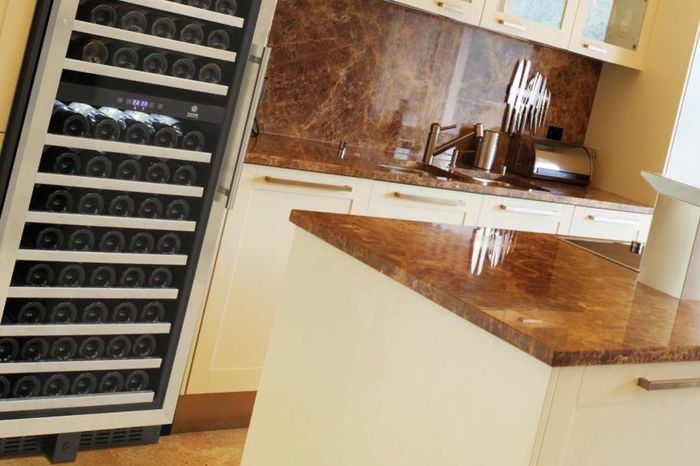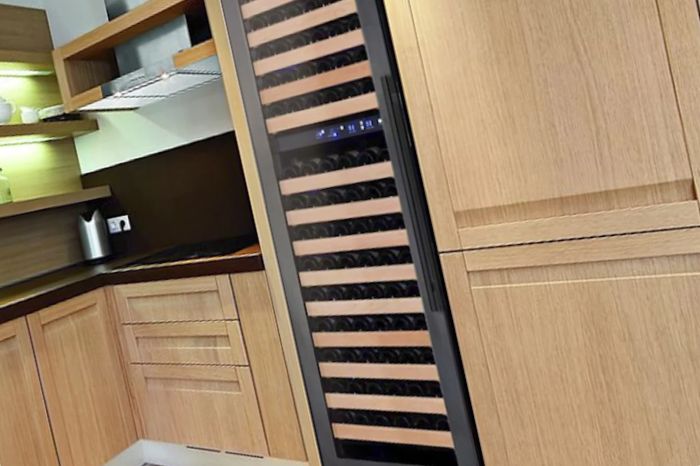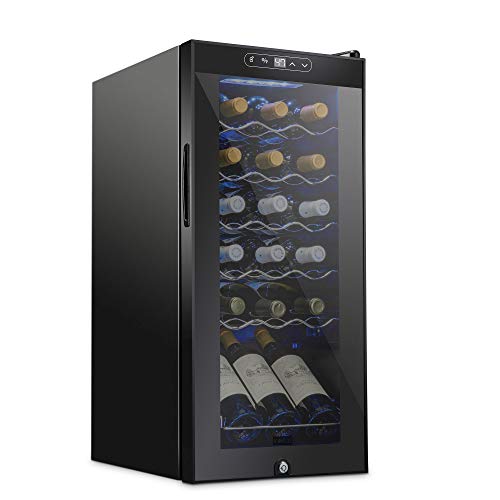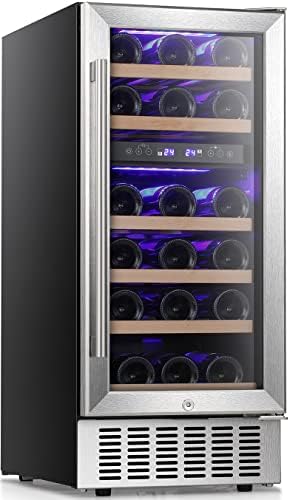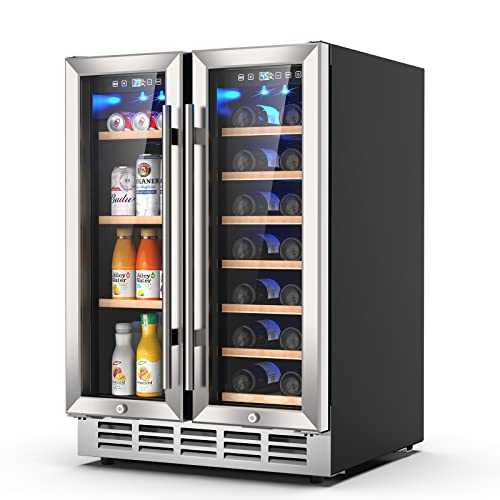Do Wine Coolers Use a Lot of Electricity?
Do you have a passion for good wine and the convenience of a chilled beverage? Do you find yourself asking if everything’s worth it when assessing your energy bills each month? If so, then this blog post is perfect for you! In this article, we will explore the amount of electricity that wine coolers use in order to help determine whether or not they are actually energy-efficient appliances.
We’ll explain how to assess whether or not purchasing one would be financially beneficial based on its estimated power draw and cost per month. Additionally, we’ll also provide some tips that can be used to reduce the costs associated with maintaining your wine cooler over time. Whether you’re a vino connoisseur or just someone who enjoys their beverages slightly chilled, let’s dive into understanding more about using electrical appliances within our homes responsibly and wisely!
What are the Benefits of Having an Energy-Efficient Wine Cooler?
An energy-efficient wine cooler boasts a range of benefits that are both practical and environmentally friendly. Energy efficiency means that the appliance uses less power to operate, thus reducing energy costs and making it a more eco-friendly option. Additionally, these coolers use advanced technologies that help to maintain the optimal temperature and humidity levels required for storing wine – which is crucial in preserving the wine’s quality, taste, and aroma.
Here are some of the key benefits of an energy-efficient wine cooler:
Lower energy bills: With an energy-efficient wine cooler, you can save money on energy bills, as the appliance uses less electricity compared to regular models. This means that you can keep your wine at the perfect temperature without taking a hit on your wallet.
Reduced carbon footprint: Energy-efficient wine coolers have a lower carbon footprint, which makes them more environmentally friendly. By using less power, these coolers release fewer greenhouse gas emissions, helping to reduce the impact of climate change.
Better wine preservation: Wine is a delicate drink that needs to be stored at the right temperature and humidity. An energy-efficient wine cooler helps to maintain these optimal conditions, ensuring that your wine tastes great and lasts longer.
Improved appliance lifespan: Energy-efficient wine coolers come with advanced features such as better insulation, frost-free technology, and digital temperature controls. These features help to reduce wear and tear on the appliance, leading to a longer lifespan and fewer maintenance costs.
Quiet operation: Because energy-efficient wine coolers use advanced compressor technology, they are quieter than traditional models. This means that you can keep your wine at the optimal temperature without any annoying operational noises.
Do Wine Coolers Use a Lot of Electricity?
Wine coolers, also known as wine refrigerators, have become increasingly popular in recent years for wine enthusiasts who want to regulate the temperature and humidity of their wine collection. But with the rise in popularity comes the concern about energy consumption. So, do wine coolers use a lot of electricity?
The answer is, that it depends on the size of the wine cooler. A small to medium-sized wine fridge with a capacity of 20 to 50 bottles can consume between 100 to 200 kWh of electricity per year. This translates to an average daily energy consumption of around 0.27 to 0.54 kWh, which is roughly equivalent to running a 60-watt light bulb for 4 to 8 hours.
It’s important to note that larger wine coolers with a capacity of 100 bottles or more will consume more energy than smaller ones. Additionally, the energy consumption of a wine cooler will depend on its features, such as whether it has a glass door, LED lighting, or a thermoelectric or compressor cooling system.
What Tips Can Help You Choose an Energy-Efficient Wine Cooler?
When choosing an energy-efficient wine cooler, there are several factors to consider. Firstly, look for models that use thermoelectric cooling technology instead of compressor-based systems. Thermoelectric wine coolers are quieter, have fewer moving parts, and use less energy. They also do not emit harmful gases into the environment, making them an eco-friendly choice.
Another key consideration is the insulation of the wine cooler. Look for models that have thick walls and a well-sealed door to keep energy usage to a minimum. A poorly insulated wine cooler may require more energy to maintain a consistent temperature, leading to higher electricity bills.
It is also important to choose the right size wine cooler for your needs. A larger wine cooler may require more energy to cool, whereas a smaller model may require less energy but may not hold all of your wine bottles. Make sure you choose a wine cooler with the capacity you need to avoid wasting energy.
Finally, look for wine coolers with energy-saving features such as temperature memory, auto-defrost, and low-energy LED lighting. These features can help reduce energy usage and lower your environmental impact.
What are the Benefits of Using a Wine Cooler Over Traditional Cooling Methods?
Wine connoisseurs and enthusiasts alike know the importance of storing wine at the right temperature. In order to maintain the integrity and quality of wine, it is essential to ensure it is stored at a consistent and optimal temperature. While there are various traditional methods of cooling wine, such as storing it in a refrigerator or wine cellar, wine coolers have emerged as a popular and efficient alternative. The benefits of using a wine cooler over traditional cooling methods are numerous and considerable.
Firstly, wine coolers offer more precise temperature control, allowing the wine to be kept at an optimal temperature range, typically between 45 to 65 degrees Fahrenheit. This is important as storing wine at a consistent temperature prevents the wine from aging prematurely or developing any unwanted flavors. In contrast, refrigerators fluctuate in temperature and do not always maintain the desired humidity levels, which can cause the wine to spoil or deteriorate over time.
Another benefit of wine coolers is that they provide a designated space for wine storage, which can be especially advantageous for those with limited space. Additionally, wine coolers are designed to protect wine bottles from light and vibration, both of which can negatively impact wine quality. Wine stored in a refrigerator is susceptible to light exposure, as the glass door does not offer adequate protection. Moreover, vibration from the refrigerator’s compressor can disturb the sediment in the wine, leading to an unpleasant taste and aroma.
Overall, wine coolers offer a multitude of benefits over traditional cooling methods. They provide precise temperature control, a designated space for wine storage, and protection from light and vibration. In conclusion, investing in a wine cooler is a wise choice for any wine enthusiast looking to preserve the quality and taste of their favorite wines.
Conclusion
After reading this blog post, you should be better informed about the amount of electricity used by wine coolers. While wine coolers can be more energy-efficient than a standard refrigerator, when most consumers purchase them they tend to purchase a model with higher energy use, leading to higher electricity bills. It is important to take into consideration how much electricity any appliance uses when deciding what type of wine chiller or cooler to purchase.
While some of the larger and more powerful units require more energy than others, many of the models on the market today are relatively energy efficient. If you’re in the market for an appliance that will efficiently chill your wine while complementing your home décor, don’t forget to look for a model that offers low electricity usage. Try buying one with temperature control features so you can accurately control how much you use your cooler’s electricity. With all these factors in mind, you can find a great energy-efficient product that operates at lower costs and the greatest efficiency, making it well worth the investment.

